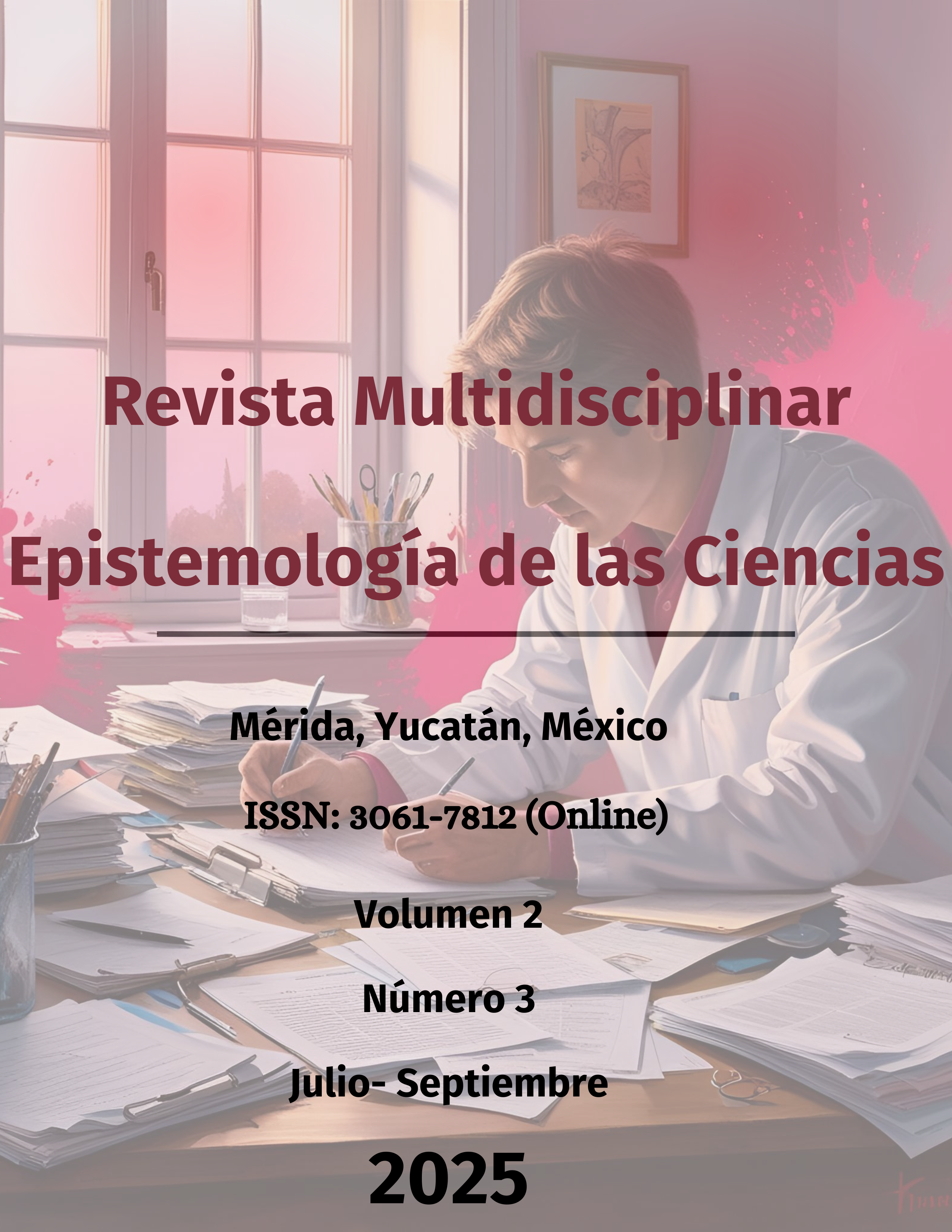Comparative Analysis of Pollutant Emissions Between Super Gasoline and Ecopaís in a 2011 Chevrolet Vitara SZ Vehicle
DOI:
https://doi.org/10.71112/zsdmhq57Keywords:
environmental pollution, exhaust emissions, Ecopaís gasoline, Super gasoline, transportation sustainabilityAbstract
This study aims to compare the environmental impact and performance of Ecopaís and Super gasolines under real-life driving conditions. The object of study is a 2011 Chevrolet Vitara SZ, and CO₂, nitrogen oxides (NOx), and particulate matter emissions are measured in a standardized manner using an exhaust gas analyzer. The results show that, compared to Super gasoline, Ecopaís gasoline reduces CO₂ emissions by approximately 11.11%, NOx emissions by 20%, and particulate matter emissions by 25%. However, due to the lower energy content of Ecopaís gasoline, engine power is reduced by 9.3%. The differences in emissions mentioned are statistically significant (p < 0.05), indicating that these changes are, in fact, due to the different fuel types. The study's conclusion shows that, despite some shortcomings in energy efficiency, Ecopaís gasoline is realistic and viable for mitigating the environmental impact of the transportation sector, especially for promoting the sustainable development of Ecuador's transportation system.
Downloads
References
Alves, G., & Odriozola, J. (2024). RED 2024-Capítulo 8: Transporte y transición energética: hacia una movilidad sustentable. CAF-Banco de Desarrollo de América Latina y el Caribe.
Andrade, H., Arteaga, C., & Segura, M. (2017). Emisión de gases de efecto invernadero por uso de combustibles fósiles en Ibagué, Tolima (Colombia). Corpoica Ciencia y Tecnología Agropecuaria, 18(1), 103–112. https://doi.org/10.21930/rcta.vol18_num1_art:561 DOI: https://doi.org/10.21930/rcta.vol18_num1_art:561
Balderrama, & Espinal. (2025). Análisis comparativo entre gasolinas súper y Ecopaís con aditivos r1. Polo del Conocimiento. https://polodelconocimiento.com/ojs/index.php/es/article/view/9700/html
Barba, & Valdiviez. (2024). Analysis of driving style and its influence on fuel consumption for the city of Quito, Ecuador: A data-driven study. En M. Botto-Tobar & M. Zambrano Vizuete (Eds.), 5th International Conference on Applied Technologies (ICAT 2023), Communications in Computer and Information Science (Vol. 2049, pp. 247–261). Springer. https://doi.org/10.1007/978-3-031-58956-0_17 DOI: https://doi.org/10.1007/978-3-031-58956-0_19
Belis, C., Karagulian, F., Larsen, B., & Hopke, P. (2013). Critical review and meta-analysis of ambient particulate matter source apportionment using receptor models in Europe. Atmospheric Environment, 69, 94–108. DOI: https://doi.org/10.1016/j.atmosenv.2012.11.009
Chandi, Muñoz, Freire, & Rosero. (2025). Estudio de la variación del grado de octanaje mediante mezclas de gasolina extra, Ecopaís y súper. EPSIR. https://epsir.net/index.php/epsir/article/view/1388
Emberger, G. (2017). Low carbon transport strategy in Europe: A critical review. International Journal of Sustainable Transportation, 11(1), 31–35. https://doi.org/10.1080/15568318.2015.1106246 DOI: https://doi.org/10.1080/15568318.2015.1106246
Encalada, C., Villacís, M., & Galárraga, E. (2022). Fuel characteristics, vehicle emissions and air quality in Ecuador: A review. Environmental Pollution, 292, 118264. https://doi.org/10.1016/j.envpol.2021.118264 DOI: https://doi.org/10.1016/j.envpol.2021.118264
Fulton, L., Lynd, L., Körner, A., Greene, N., & Tonachel, L. (2015). The need for biofuels as part of a low carbon energy future. Biofuels, Bioproducts and Biorefining, 9, 476–483. https://doi.org/10.1002/bbb.1559 DOI: https://doi.org/10.1002/bbb.1559
González, L., & Pérez, C. (2022). Evaluación comparativa del impacto ambiental de combustibles fósiles y biocombustibles en motores de encendido por chispa. Revista Iberoamericana de Ingeniería Mecánica, 26(3), 112–125. https://doi.org/10.22201/riim.2022.2633
International Energy Agency (IEA). (2017). International energy outlook. EIA. https://www.eia.gov/outlooks/ieo/
International Energy Agency (IEA). (2021). CO2 emissions from fuel combustion highlights. Agencia Internacional de Energía. https://www.iea.org/reports/co2-emissions-from-fuel-combustion-highlights-2021
International Energy Agency (IEA). (2023). Global energy & CO2 status report. https://www.iea.org/reports/global-energy-co2-status-report-2023
Instituto Nacional de Estadística y Censos (INEC). (2020). Informe sobre la distribución y uso de biocombustibles en Ecuador. INEC.
Instituto Nacional de Eficiencia Energética y Energías Renovables (INEEER). (2020). Informe de resultados del uso de biocombustibles en el sector transporte del Ecuador. https://www.energia.gob.ec/
InGenius. (2022). Evaluation of pollutant emissions from diesel vehicles fueled with biodiesel from waste frying oil. Ingenius, 26, 52–58. https://ingenius.ups.edu.ec/index.php/ingenius/article/view/10266
Llanes, E., Rocha, J., Peralta, D., & Leguísamo, J. (2018a). Evaluación de emisiones de gases en un vehículo liviano a gasolina en condiciones de altura: Caso de estudio Quito, Ecuador. Enfoque UTE, 9(2), 149–158. https://ingenieria.ute.edu.ec/enfoqueute/public/journals/1/html_v9n2/art014.html
Llanes, E., Rocha, J., Peralta, D., & Leguísamo, J. (2018b). Evaluation of gas emissions in light gasoline vehicles in height conditions. Enfoque UTE, 9(2), 149–158. https://www.scipedia.com/public/Llanes_et_al_2018a DOI: https://doi.org/10.29019/enfoqueute.v9n2.201
Martínez, D., & Cedeño, P. (2023). Efecto del uso de gasolina Ecopaís en vehículos de servicio urbano sobre los niveles de monóxido de carbono en Guayaquil. Revista Técnica Energía y Transporte, 15(2), 45–53. https://revistatecnicaet.com.ec/index.php/revista/article/view/207
Morquecho. (2018). Análisis de rendimiento y costo de los combustibles Ecopaís y Súper. INNOVA Research Journal. https://revistas.uide.edu.ec/index.php/innova/article/view/899/1207 DOI: https://doi.org/10.33890/innova.v3.n10.1.2018.899
Patiño-Aroca, M., Parra, A., & Borge, R. (2022). On-road vehicle emission inventory and its spatial and temporal distribution in the city of Guayaquil, Ecuador. Science of The Total Environment. https://www.sciencedirect.com/science/article/pii/S0048969722047623 DOI: https://doi.org/10.1016/j.scitotenv.2022.157664
Pérez. (2018). Estudio de emisiones contaminantes utilizando combustibles locales. INNOVA Research Journal. https://revistas.uide.edu.ec/index.php/innova/article/download/635/597/1789
Reyes, A., & Espinosa, J. (2021). Comparative analysis of emissions in internal combustion engines using bioethanol-blended fuels in urban transport. Renewable Energy, 178, 1229–1238. https://doi.org/10.1016/j.renene.2021.06.038 DOI: https://doi.org/10.1016/j.renene.2021.06.038
Sáenz, G. (2014). El Programa Ecopaís: Una apuesta por un biocombustible sustentable. Universidad de Guayaquil.
Taipe, Llanes, & Morales, Checa. (2020). Evaluation of an experimental induced ignition engine under the individual use of three types of gasoline sold in Ecuador. InGenius, 18, 16–25. https://retos.ups.edu.ec/pdf/ingenius/articulo2_ing.pdf
Urgilés Sánchez, L. E., & Erreyes, J. L. (2018). Análisis de la influencia del combustible Ecopaís en emisiones contaminantes y prestaciones de un vehículo Chevrolet Grand Vitara como prototipo en la ciudad de Cuenca [Tesis de grado, Universidad Politécnica Salesiana]. https://dspace.ups.edu.ec/handle/123456789/15324
Velasco, J., & Muñoz, P. (2022). Evaluación del impacto ambiental de la gasolina Ecopaís en vehículos de transporte público en Ecuador. Revista de Ciencias Ambientales.
Viteri, R., Borge, R., Paredes, M., & Pérez, M. A. (2023). A high resolution vehicular emissions inventory for Ecuador using the IVE modelling system. Chemosphere. https://doi.org/10.1016/j.chemosphere.2022.137462 DOI: https://doi.org/10.2139/ssrn.4199997
World Health Organization (WHO). (2016). Ambient air pollution. http://www.who.int/gho/publications/world_health_statistics/2016/whs2016_AnnexA_AmbientAirPollution.pdf
Wu, T., Zhang, S., Hao, J., Liu, H., Wu, X., Hu, J., & Stevanovic, S. (2017). On-road vehicle emissions and their control in China: A review and outlook. Science of The Total Environment, 574, 332–349. https://doi.org/10.1016/j.scitotenv.2016.09.040 DOI: https://doi.org/10.1016/j.scitotenv.2016.09.040
Downloads
Published
Issue
Section
License
Copyright (c) 2025 Multidisciplinary Journal Epistemology of the Sciences

This work is licensed under a Creative Commons Attribution 4.0 International License.











